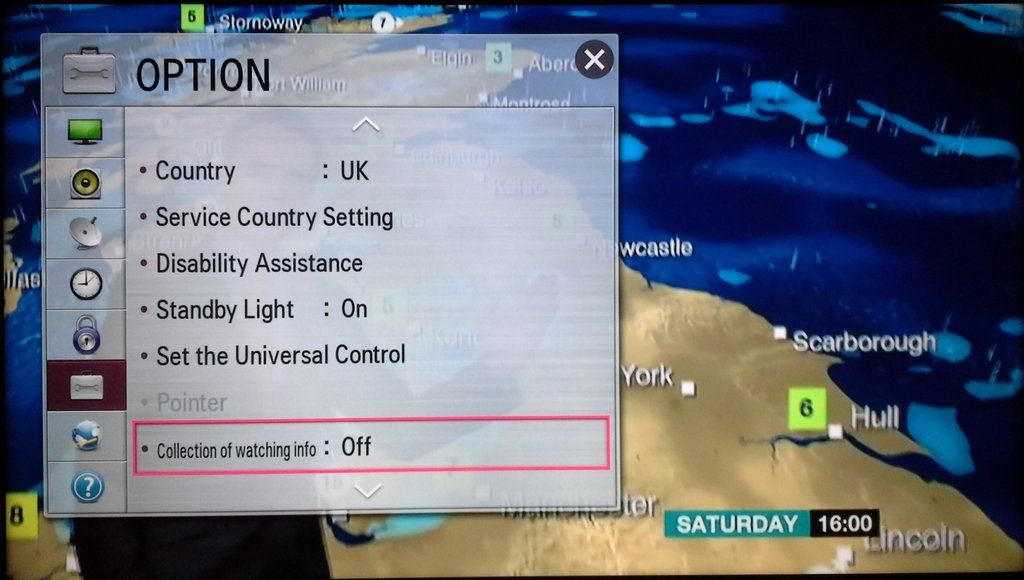LG has responded to claims that its Smart TVs spy on users' viewing habits, saying it is looking into the issue and that it makes privacy concerns its priority.
Blogger DoctorBeet found that even when his UK LG TV had data collection mode switched to off, his television was still sending information directly to the company. That data was also being sent in an unencrypted form.
There is an option in the menu system called "Collection of watched info", but switching it off seems to do nothing, says DoctorBeet.
The data collected by LG is used for the company's Smart Ad function, whereby advertisers can target their wares at the most suitable audience. Every time you change channel, the TV sends a packet of information about the channel you have changed to, the date and the time. From this, LG can figure out what it is you are watching.
But an even more serious packet of data was also being sent to LG. It sent the names of files watched on a USB stick or external hard drive. DoctorBeet created a dummy file to test this and called it Midget_Porn_2013.avi and the resulting file was mentioned in a data dump, showing that the filename was sent to LG.
Since the revelation, LG has responded to Engadget. "We're looking into this now. We take these claims very seriously and are currently investigating the situation at numerous local levels since our Smart TVs differ in features and functions from one market to another. We work hard to get privacy right and have made this our top priority," it said.
It might take a while for it to explain its stance. However, this response is better than the one received by DoctorBeet: "We have escalated the issues you reported to LG's UK Head Office," was the email he was sent in reply to his concerns.
"The advice we have been given is that, unfortunately. as you accepted the Terms and Conditions on your TV, your concerns would be best directed to the retailer. We understand you feel you should have been made aware of these T's and C's at the point of sale, and for obvious reasons LG are unable to pass comment on their actions.
"We apologise for any inconvenience this may cause you."
We suspect that this is not the last we hear on this subject.

